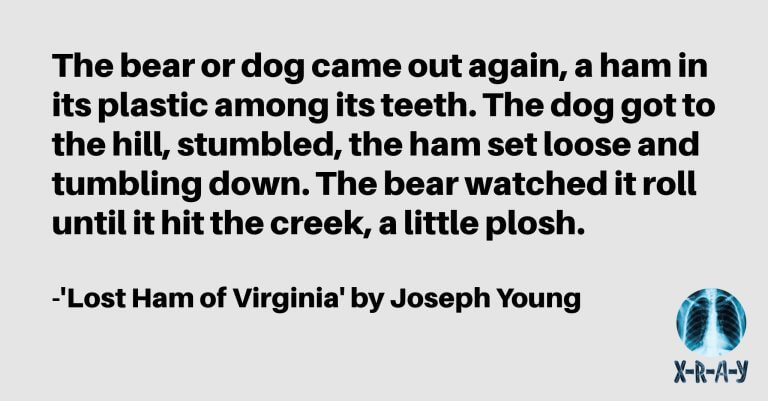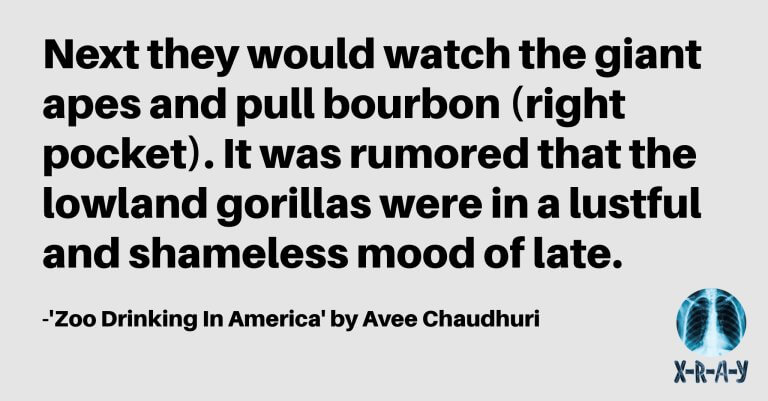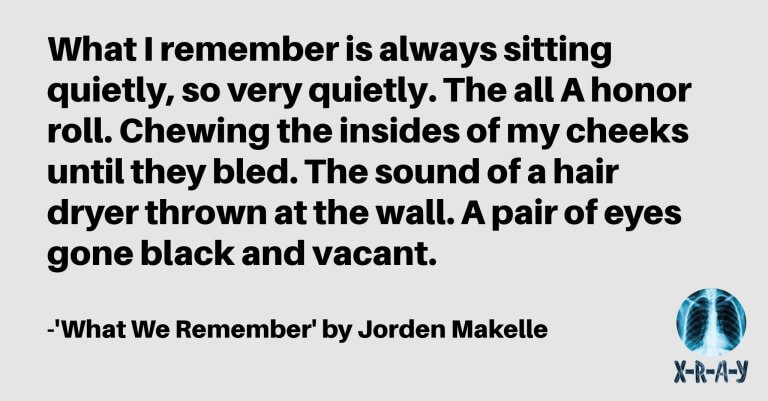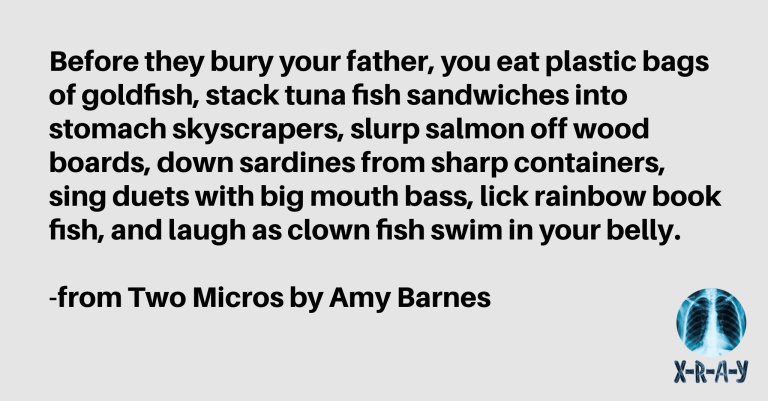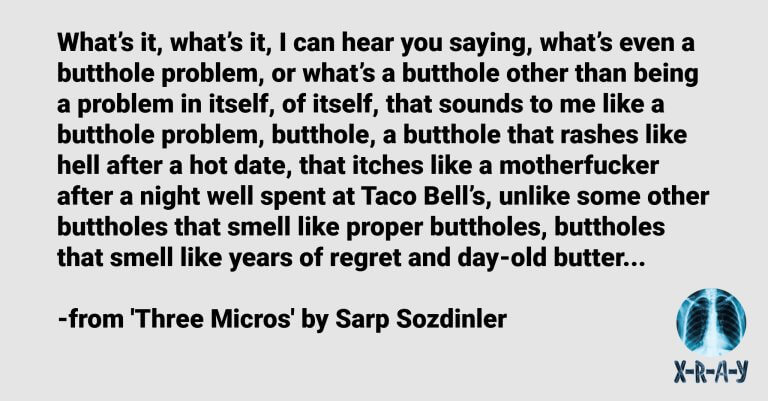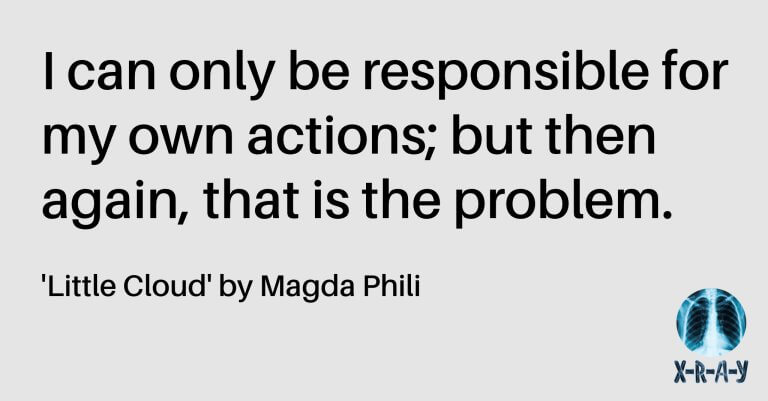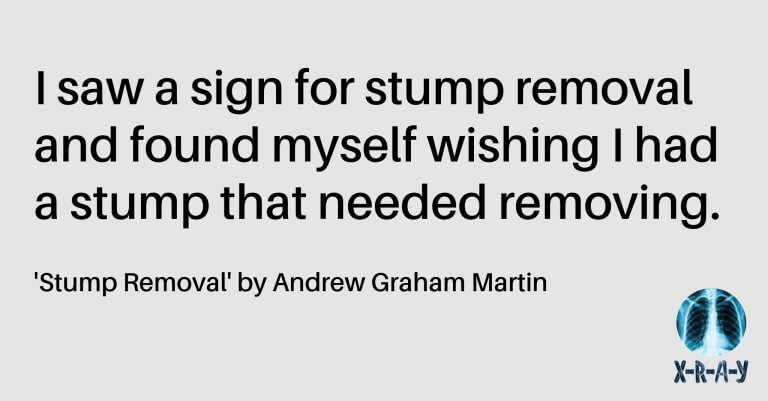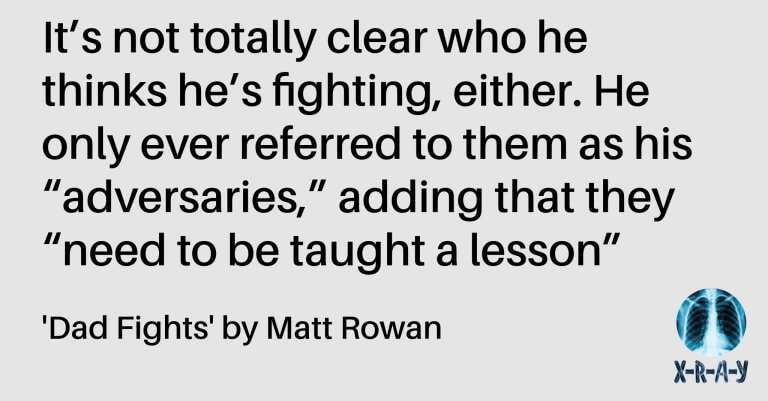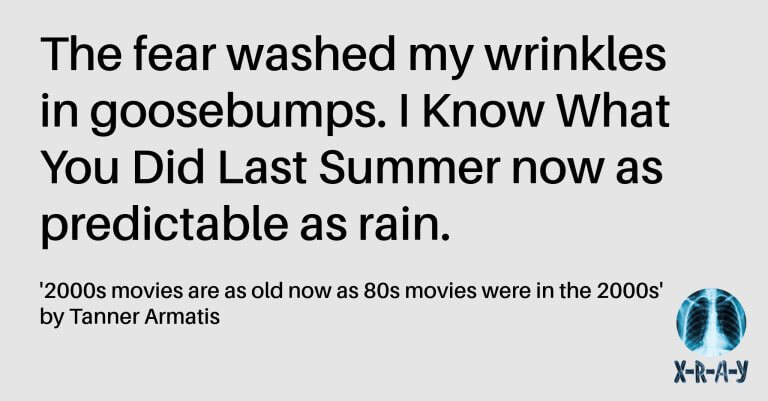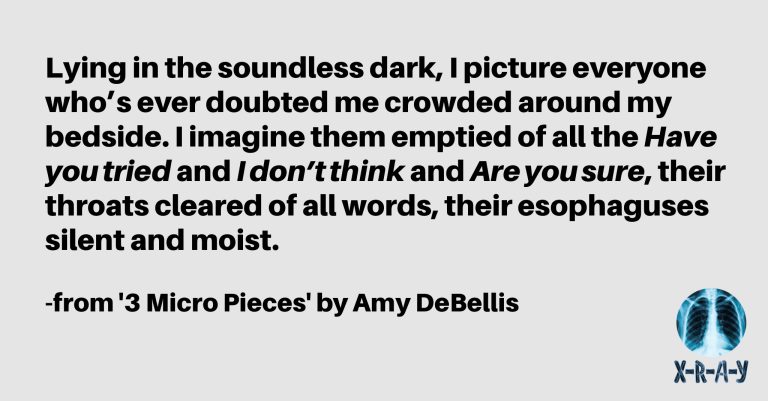
3 MICRO PIECES by Amy DeBellis
Yakutsk
Temperature dropping like a dive off a cliff. My lungs full of winter air, clear and sharp as ice. After the airplane and its stale box of other people’s exhalations, each breath is like mainlining oxygen. When I rub my lips together their skin is as dry as the snow beneath my boots. The salt of this morning still furs my tongue. My hands tremble brittle in my coat pockets, and my fingers rub the edge of a ticket, a mint, an obsolete coin. In only a few moments I will put my memories behind me and walk into the taiga. Try to forget your face and its smiling cruelty, the soft malice that always comes with power. Try to forget how you uploaded your consciousness into the cloud and cheated death, how you turned the ouroboros from a snake to a mute circle, a faceless loop: a splotch of ringworm, a spreading bulls-eye rash, a scrawled zero. Try not to wonder, a hundred years after I am dead, how much of this forest too will be gone.The wall of trees yawns before me. No fresh green breast here, no—here is a frozen emerald heart, holding within it no ability to nurture but only to embalm, to write my body like a stone carving, immersing it gemlike in years of snow. I step forward and the trees swallow me. They are tall and green and endless, speaking of everything I have forgotten how to say to you.Wake
Morning: the sun smears blood across the sky. My mother’s body is as white and long-stemmed as a lily, a flower in its velvet casing. I’m drenched in black like I’m trying to melt into the shadows around the walls. Like I’m trying to camouflage myself from every distant relative—their exhalations sour with coffee, their smiles oily with false sympathy. I think of the last time I saw my mother smile: at the sea, the last place we traveled together. Inside my head I say Mother. The word flutters, dark and silent, on my tongue. I remember the green endlessness of the ocean, how we lay back on the sand and let the sun bleach the water from our bodies. Brine and salt in my mouth. The waves rising, cresting, falling. Time a noose around our necks.Even My Fantasies Are Chronically Ill
Ringing in my ears like the seconds after an explosion, except it’s constant and unending, shrill as silver, and there was no explosion. Only days, soft and slow. I try to stand and my body fails me. A collection of diagnoses accumulates like a layer of filth on my skin: mast cell activation, dysmenorrhea, chronic urticaria. I try to stand and my body fails me. Craniocervical instability, hyperacusis, photophobia. My windows are shuttered; the layer on my skin is permanent. Postural orthostatic tachycardia, myalgic encephalomyelitis. The words of my diagnoses grow longer and longer until they might not even be real anymore, just syllables contorting themselves into agonized, impossibly labyrinthine shapes. My body keeps failing me forever, an endless loop of standing up and crashing back down again. My legs grow thin and brittle like matchwood. The ringing in my ears now more like a screaming. Lying in the soundless dark, I picture everyone who’s ever doubted me crowded around my bedside. I imagine them emptied of all the Have you tried and I don’t think and Are you sure, their throats cleared of all words, their esophaguses silent and moist. I imagine seeds sinking into the damp flesh there, weeds sprouting from their mouths, finally blooming into bright fistfuls of flowers: a perfect copy of the garden outside my window, the garden I can no longer see.
